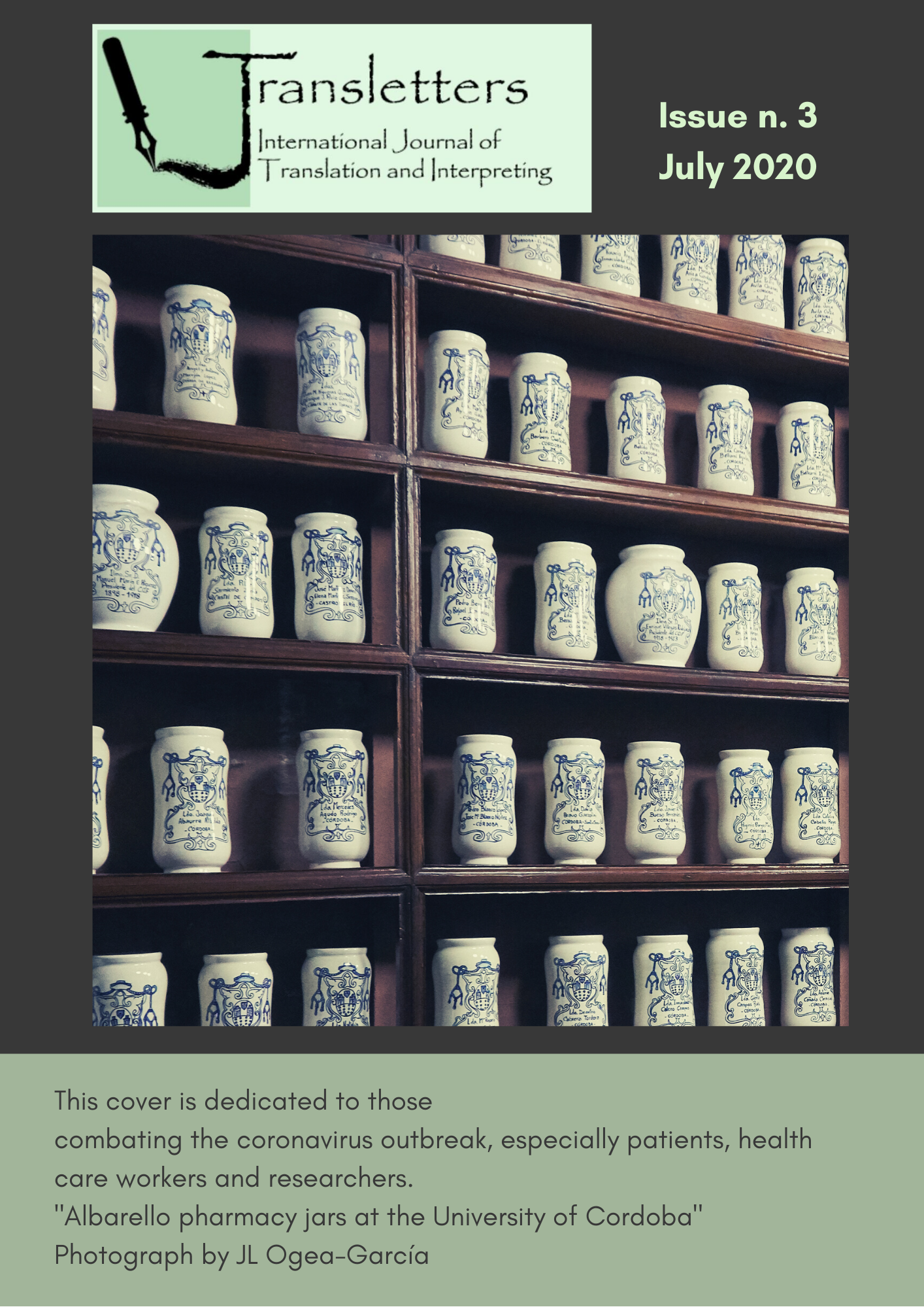Arrojo, R. (2018) Fictional Translators: Rethinking Translation through Literature.
Contenido principal del artículo
Resumen
In Fictional Translators: Rethinking Translation through Literature, Rosemary Arrojo provides us with new insights for probing into translation studies through reflections on fictional texts. She believes fictional narratives have implications for translation-related problems or theories on the condition that we expand the definition of theory to its “etymology of theoria, a way of seeing or looking” (Arrojo, 2018: 3). The book comes out of Arrojo’s long-held conviction that “fictional representations of the work of translators will shine a special, often unexpected light on the scene of translation as an asymmetrical encounter between different languages, interests, and perspectives” (Arrojo, 2018:1). Through this book, the author reinvestigates the clichés permeating the translation studies, rediscovering what has been undervalued or even ignored.
Descargas
Detalles del artículo
Política propuesta para las revistas que ofrecen acceso abierto
Los/as autores/as que publican en esta revista aceptan las siguientes condiciones:
1. Los/as autores/as conservan los derechos de autor y conceden a la revista el derecho de primera publicación con el trabajo licenciado simultáneamente bajo una Licencia de Atribución de Creative Commons, la cual permite a otras personas compartir el trabajo con un reconocimiento de la autoría del trabajo y la publicación inicial en esta revista.
2. Los/as autores/as pueden establecer acuerdos contractuales adicionales para la distribución no exclusiva de la versión publicada del trabajo en la revista (por ejemplo, enviarlo a un repositorio institucional), con un reconocimiento de su publicación inicial en esta revista.
3. Se permite y anima a los/as autores/as a publicar su trabajo previo a la versión final publicada en esta revista una vez aceptado (por ejemplo, en repositorios institucionales o en su sitio web), ya que puede dar lugar a intercambios productivos, así como a una citación más temprana y mayor del trabajo publicado (Véase El efecto del acceso abierto).

